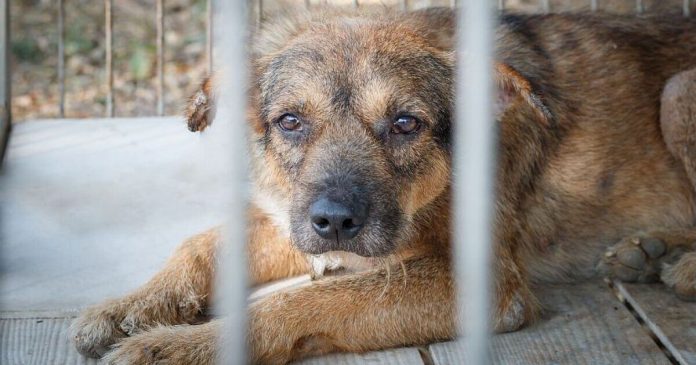This article has been written by Supriya Pillai pursuing a Diploma in Legal English Communication – oratory, writing, listening and accuracy course from LawSikho.
This article has been edited and published by Shashwat Kaushik.
Table of Contents
Rights of non-human beings
Do animals have rights? It’s not that easy to answer. What are the rights of animals? Animal rights are moral principles grounded in the belief that non-human animals deserve the ability to live as they wish without being subjected to the desires of human beings. Animal welfare and rights have become global concerns that require global regulation. It’s the notion that they should be protected from harm, cruelty, and exploitation. They have certain rights, just like humans do. And they should be protected from all the suffering and torture of human beings. Advocates for animal rights say that they experience pain, pleasure, and different kinds of emotions just like humans do. Animals also deserve rights to life, liberty, and freedom, as they are also part of our ecosystem. Animals are not mere commodities or resources for human use; they should be treated with respect and consideration for their intrinsic value. Essentially, it’s about recognising that animals have feelings and should be treated with consideration. This article aims to explain the evolution of animal rights and their significance to our world.
Time-bound analysis
Concern for animal suffering is not new or modern. The notion of animal rights has been around for ages. The ancient Hindu, Buddhist, and Jainism scriptures advocate a vegetarian diet for ethical reasons. The most important principle of the scriptures was ahiṃsa, meaning ‘non-injury and non-killing’. Ahimsa means kindness and non-violence towards all living beings, including animals; they believe that they are integral parts of our society.
Western countries have also expressed their support for animal rights in the past. Many people contributed to the development of the animal rights movements; however, Richard Martin, an Irish politician, played an important role in the animal rights movement. He passed one of the first farmed animal welfare laws (the Cruel Treatment of Cattle Act) in 1822 and founded the first animal welfare charity (the Royal Society for the Prevention of Cruelty to Animals) in 1824. With the passage of time, animal rights have evolved around the world. Countries have amended their animal-pertinent laws and legislation. Animal abusers are now subject to more stringent laws.
Global perspectives on animal rights recognition
Various countries and government policies have taken cognizance of animal rights as an issue that requires regulation. Global laws are changing. Consumer purchasing decisions on products for animal welfare have changed. They are now more mindful of the welfare of animals. And so do industries; they are making products that are vegan and cruelty free. There are many organisations and activists who are advocating for animal rights and wellbeing. One of the famous organisations is PETA , they educate people on how animals are tortured and slaughtered to meet human needs. For the sake of human needs, animals have been subjected to torture on various levels. Sometimes, as part of scientific experiments, entertainment, or cosmetic industries. But gradually these things are changing and getting better for animal society.
Recently passed legislation pertaining to the animal world
In 2009, Bolivia became the first country to outlaw the use of animals in circuses, acknowledging the potential for suffering and distress in such settings. In similar vein, Spain was the first nation in Europe to formally acknowledge animal sentience in 2021, giving them some fundamental rights and outlawing their employment in circuses and other similar entertainment. Recently, South Korea passed a law banning dog meat trade in 2023. The legislation, set to come into force by 2027, aims to end the centuries-old practice of humans eating dog meat. Dog meat stew is called boshintang in South Korea. The ban was necessary to promote animal rights. South Korea’s perspective has been changed towards dogs. “Dogs are like family now and it’s not nice to eat our family.” The new legislation focuses on the dog meat trade – offenders facing up to three years in prison for killing dogs, and upto two years for raising dogs for meat or selling dog meat. Farmers and restaurant owners have to find a substitute for dog meat before the act becomes operative.People are being more considerate and empathetic towards dogs. Nevertheless, some people have different perspectives on the prohibition. Many elderly farmers and restaurateurs are in their 60s and 70s and it would be difficult for them to switch to different livelihoods and hence, they will lose their livelihoods. India with the animals: Last year, Supreme Court’s five-judge Constitution Bench comprising of KM Joseph, Ajay Rastogi, Aniruddha Bose, Hrishikesh Roy and CT Ravikumar, has upheld the constitutional validity of the state amendments that Tamil Nadu, Karnataka, and Maharashtra made to the Prevention of Cruelty to Animals Act of 1960, allowing the states to conduct animal sports like Jallikattu, Kambala, and bull-cart racing. In Tamil Nadu, a sport called Jallikattu, also called eruthazhuvuthal, is played as part of the Pongal harvest celebration. Additionally, the same kind of sport takes place in Karnataka, called Kambala, where two buffaloes are tethered to a plough and one person anchors them.
Animal Welfare Board of India vs. A. Nagaraja and Others (2014)
In the case of Animal Welfare Board of India vs. A. Nagaraja and Others (2014), the state law that allowed the bull-taming sport in Tamil Nadu. The petitions say that animals also have fundamental rights too. Animals are subjected to torture . However, the Court opined that Article 14 of the Constitution cannot be invoked by any animal as a person.The bench said notwithstanding the cruelty involved in the bull-taming sport, it cannot be called a blood sport since there are no weapons involved.
The respondents in the case, who included the state government of Tamil Nadu and the Animal Welfare Board of India, argued that Jallikattu was a cultural tradition that was deeply ingrained in the lives of the people of Tamil Nadu. They claimed that the sport was not inherently cruel and that it could be regulated to minimise the suffering of the bulls.
The Supreme Court of India ruled in favour of the petitioners and declared the state law allowing Jallikattu to be unconstitutional. The Court held that the fundamental rights of animals include the right to be free from cruelty and that Jallikattu violated this right. The Court also noted that there were less cruel ways of preserving cultural traditions and that Jallikattu was not essential to the culture of Tamil Nadu.
The decision of the Supreme Court in the Animal Welfare Board of India v/s A. Nagaraja and Others case was a landmark ruling that recognised the fundamental rights of animals in India. The decision has also had a significant impact on the way that animals are treated in India, leading to stricter laws and regulations against animal cruelty.
In addition to the legal arguments, there are also several ethical considerations that weigh against the practice of Jallikattu. Animals are sentient beings who are capable of feeling pain and suffering. Therefore, it is morally wrong to subject them to unnecessary cruelty. Jallikattu is a brutal and barbaric practice that has no place in a civilised society.
There are also several practical reasons why Jallikattu should be banned. The sport is dangerous for both the bulls and the human participants. Bulls can become enraged and attack the people who are trying to tame them. There have been several cases of people being killed or seriously injured during Jallikattu events.
Jallikattu is also a public health hazard. The blood and saliva of the bulls can spread diseases to people who come into contact with them. There have been several outbreaks of diseases, such as brucellosis and tuberculosis, following Jallikattu events.
The amendments include certain guidelines that prohibit causing any physical disturbance to the bulls, like beating and poking them with sharp objects or sticks, pouring chilli powder in their eyes, twisting their tails and other pain inflicting acts. Further, the Amendment Act Jallikattu has been described as part of the culture and tradition of Tamil Nadu. It needs to be protected but bulls should not be ill treated.The Court ensured that animals are not subjected to abuse for the purpose of sports. It needs to balance out.
The legal framework for animal rights in India is a complex and evolving one. While there are a number of laws that protect animals from cruelty, there is still much room for improvement.
The most important law protecting animals in India is the Prevention of Cruelty to Animals Act, 1960. This law prohibits a wide range of cruel acts towards animals, including beating, mutilation, and starvation. It also provides for the establishment of animal shelters and the appointment of animal welfare officers.
In addition to the Prevention of Cruelty to Animals Act, there are a number of other laws that provide some protection for animals. These include the Wildlife Protection Act of 1972, which protects wild animals and their habitats; the Animal Welfare Board of India Rules, 1998, which regulate the use of animals in circuses and other entertainment venues; and the Performing Animals (Registration) Rules of 2001, which require the registration of animals used in performances.
Despite these laws, animal cruelty is still a serious problem in India. Animals are often beaten, starved, and neglected. They are also used in a variety of cruel practices, such as bullfighting and cockfighting.
There are a number of things that can be done to improve the protection of animals in India. One important step is to raise public awareness of animal cruelty. Another is to strengthen the enforcement of existing laws. Finally, it is important to educate people about the importance of treating animals with compassion and respect.
Things that can be done to improve animal rights in India
Here are some specific things that can be done to improve animal rights in India:
- Strengthen the enforcement of existing laws. The Prevention of Cruelty to Animals Act and other laws protecting animals are often not enforced effectively. This is due to a number of factors, including a lack of resources and a lack of political will. It is important to increase funding for animal welfare enforcement and to ensure that the police and other law enforcement agencies take animal cruelty seriously.
- Educate the public about animal cruelty. Many people are simply unaware of the extent of animal cruelty in India. It is important to educate the public about the issue and to encourage people to report cases of cruelty. There are a number of organisations that are working to educate the public about animal cruelty, such as the Animal Welfare Board of India and the People for the Ethical Treatment of Animals (PETA).
- Promote compassion and respect for animals. It is important to teach people from a young age that animals are sentient beings who deserve to be treated with compassion and respect. This can be done through education, the media, and popular culture. By promoting compassion and respect for animals, we can create a more humane society for all.
Industries and animal rights
Animals are used for experiments for various purposes. Especially to develop new drugs or test the safety of the products. These experiments cause them severe pain, and sometimes they die as a result. It is morally and ethically wrong to torture them.
Ethical issues in animal testing and research
There is a wide range of opinions on the ethics of animal testing and research. It is difficult to develop new drugs without some animal testing. Moreover, if there are human illnesses that cannot be treated without new medicine that requires some animal testing, should we still think of animal research as a moral obligation? It is difficult to distinguish between science and moral obligation. Humans will suffer if research is discontinued , both parties suffer. That is the crux of the ethical argument in favour of animal research, and those who are against it ought to make a stronger case for it.
Entertainment Industries and Animal Rights (Zoos and Circuses)
People have experienced the pain of confined animals at zoos during the lockdown. Animals have been confined to zoos for many years, some of them have never experienced sunlight or lush grass. Animals have been subjected to torture in the name of zoos or circuses for the purpose of human amusement. It is an unnecessary and inhuman practice. Some people say zoos can be used for educational purposes. Children can learn from them and interact with them. While other people oppose keeping animals in captivity indefinitely in order to entertain humans. Zoos are very popular and they generate a lot of money so they are unlikely to cease to exist any time soon. But there are ways in which zoos could be improved to promote animal welfare, environmental education, and human/animal interaction. A sanctuary may be preferable for animals, according to some. They’ll experience the sensation of being lodged in a forest.
In the circus, unlike human performance, they are forced to act and do certain things without their will: these acts are involuntary. Some sections of society think it is fun but reality is different. Sometimes, the trainer beats the animals to keep them in control. They have been subjected to torture every day. Circus animals spend countless hours travelling inside the cage. They spend most of their lives tethered. Many nations forbid the use of animals in circuses. The advancement of technology has made it possible to replace live animals in circuses with holographic images. It will change the face of the circus. Animals have no place behind the cage for amusement.
Conclusion
Animals surely deserve to live their lives free from suffering and exploitation. All animals are capable of suffering to the same extent as people. They experience joy, anguish, fear, annoyance, isolation, and maternal love. We have a moral duty to consider their needs as well. Animals shouldn’t be used as a justification for entertainment. The animal rights movement is gathering steam thanks to films, undercover reports that reveal the inhumane treatment of animals in public places, and ongoing studies that highlight the social and cognitive complexity of nonhuman animals. The majority of people are aware that our lives are just as important to us as the lives of animals are. Despite this, they are treated as objects rather than as living individuals in our culture. Humans and animals are part of the ecosystem; one cannot exist without the other. Animals play a vital role in our environment. They struck the balance. They are part of the food chain, and if the chain breaks, the ecosystem will suffer at large. Indeed, animal rights and wellbeing are as important as our own.
References
- https://faunalytics.org/the-animal-rights-movement-history-and-facts-about-animal-rights/
- https://animalcharityevaluators.org/blog/animal-rights-movement/
- https://www.bbc.com/news/world-asia-67920167
- https://www.scconline.com/blog/post/2023/05/18/supreme-court-constitution-bench-holds-jallikattu-kambala-and-bull-cart-racing-legal-legal-news/
- https://www.thehindu.com/news/national/tamil-nadu/sc-jallikattu-verdict/article66863824.ece
- https://www.bbc.co.uk/ethics/animals/using/experiments_1.shtml
- https://www.understandinganimalresearch.org.uk/news/ethics-of-animal-research
- https://www.bornfreeusa.org/campaigns/animals-in-captivity/circuses/
- https://www.peta.org/about-peta/why-peta/why-animal-rights/
- https://api.worldanimalprotection.org/country/spain
- https://www.theguardian.com/world/2009/jul/31/bolivia-bans-circus-animals
 Serato DJ Crack 2025Serato DJ PRO Crack
Serato DJ Crack 2025Serato DJ PRO Crack










 Allow notifications
Allow notifications


